View the new short film highlighting Ocean Carbon & Biogeochemistry research and the exciting technology scientists are using to understand the oceans of today and tomorrow.
Informational website on ocean fertilization, with resources for scientists and non-scientists

Education Resources on the Carbon Cycle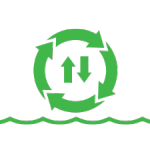
- New from Global Carbon Atlas - The Carbon Story: Interactive Infographics to learn about carbon emissions from human activity and climate change impacts (suitable for general public and school kids)
- OCB teaching/outreach slide deck Temporal and Spatial Perspectives on the Fate of Anthropogenic Carbon: A Carbon Cycle Slide Deck for Broad Audiences - also download explanatory notes
- Interactive Global Carbon Cycle Exhibit (Woods Hole Oceanographic Institution)
- The Carbon Crisis in 90 Seconds - Peter Griffith (NASA) talks about "fast" and "slow" carbon
- Global carbon cycling education/outreach website and applet tool
- CarboSchools - Partnerships between climate researchers and secondary school teachers
- NOAA/PMEL Ocean Carbon Website
- Climate Clock - a climate change visualization tool
Education Resources on the Changing Marine Ecosystems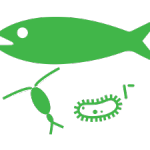
- Global Ocean Oxygen Network (GO2NE) Summary for Policymakers Declining Oxygen in the World's Ocean and Coastal Waters
- Baumann, H. 2016. Combined effects of ocean acidification, warming, and hypoxia on marine organisms
- US Global Change Research Program climate change indicators
Education Resources on the Ocean Acidification
- OCB Ocean Acidification FAQs
- 20 Facts about Ocean Acidification
- Cooley, S. and OCB Ocean Acidification Subcommittee (2009). OCB Ocean Acidification lab/outreach kit, 29 pages.
- ASLO e-lecture series on Ocean Acidification:
- Baumann, H. 2016. Combined effects of ocean acidification, warming, and hypoxia on marine organisms
- Feely, Richard A. and Doney, Scott. 2011. Ocean Acidification: The Other CO2 Problem
- Jiang, Li-Qing, et al. 2016. How to Document - Ocean Acidification Data
- Paytan, Adina and Hönisch, Bärbel. 2016. Ocean Acidification - A Paleo Perspective
- Coastal Acidification Story Map (2018)
-
Ocean Acidification exhibit in spectrUM’s on-campus museum (M. DeGrandpre, Univ. Montana)
- PBS NOVA Next web article on ocean acidification
- PBS NOVA video on ocean acidification
- Ocean Acidification - Changing Waters On The Oregon Coast
- The Calcification Challenge: Experience Ocean Acidification from a Coral Reef’s Point of View
- AAAS climate outreach website
- OA C-More kit (see resources below)
- Deeply Invested: Coral Reefs and the Future of Florida (video)
- Impacts of Ocean Acidification on California Living Marine Resources (Infographic)
Education Resources on the Biological Pump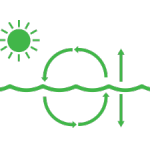
- PBS series "Changing Seas" episode on the fate of carbon in the ocean
- L&O e-lecture on the biological carbon pump: Neuer, S., M. Iverson and G. Fischer. 2014. The Biological Carbon Pump as part of the global carbon cycle. Limnol. Oceanogr. e-Lectures, doi:10.4319/lol.2014.sneuer.miversen.gfischer
- 90 second video on the Biological Pump
Infographics

Coastal Carbon Dynamics by NOAA PMEL (Source)

Ocean Carbon Uptake by NOAA PMEL (Source)

Earth's carbon cycle is off balance (NASA/JPL) (Source)

Illustrating Ocean Acidification Impacts to California's Living Marine Resources (high res PDF source)
Books
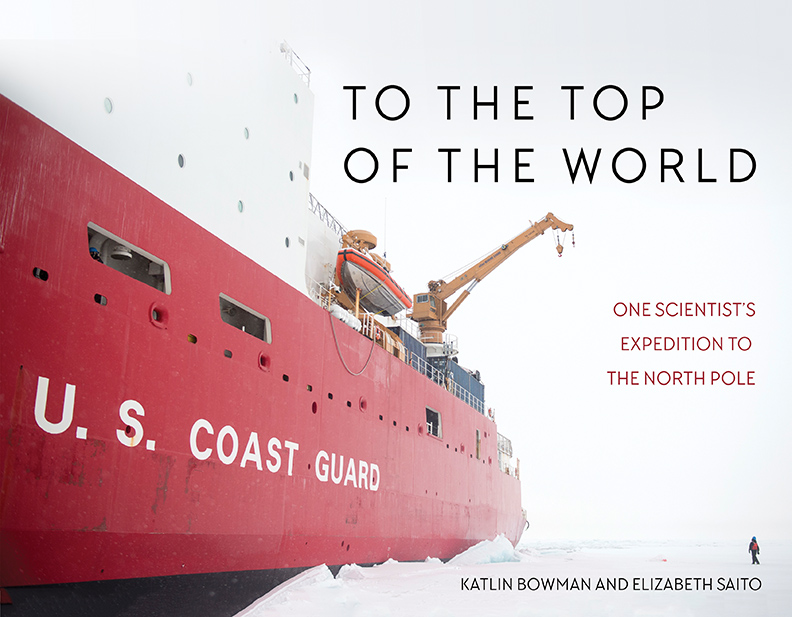 A new children’s book To the Top of the World images and stories of an Arctic GEOTRACES expedition. The book is available for sale online at www.healycruisebook.com, at the Eight Cousins bookstore in Falmouth, MA (with proceeds from local sales will go to supporting Falmouth STEM Boosters' new science fair materials fund) and at the WHOI gift shop.
A new children’s book To the Top of the World images and stories of an Arctic GEOTRACES expedition. The book is available for sale online at www.healycruisebook.com, at the Eight Cousins bookstore in Falmouth, MA (with proceeds from local sales will go to supporting Falmouth STEM Boosters' new science fair materials fund) and at the WHOI gift shop.
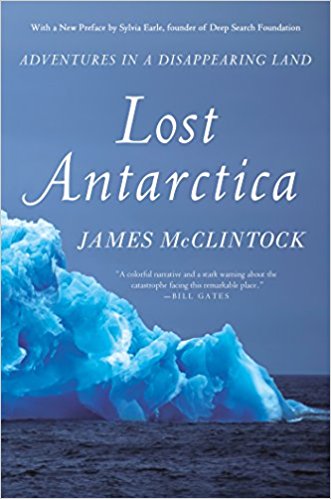 James (Jim) McClintock recently published a popular book Lost Antarctica – Adventures in a Disappearing Land. Written for the general public and with excellent reviews in Nature, Smithsonian Magazine, Kirkus Reviews, and strong endorsements by E.O. Wilson, Sylvia Earle, Bill Gates, among others, an entire chapter of Lost Antarctica is devoted to explaining ocean acidification and its current and potential impacts on Antarctic marine life. Jim was also recently interviewed on NPR's On Point show.
James (Jim) McClintock recently published a popular book Lost Antarctica – Adventures in a Disappearing Land. Written for the general public and with excellent reviews in Nature, Smithsonian Magazine, Kirkus Reviews, and strong endorsements by E.O. Wilson, Sylvia Earle, Bill Gates, among others, an entire chapter of Lost Antarctica is devoted to explaining ocean acidification and its current and potential impacts on Antarctic marine life. Jim was also recently interviewed on NPR's On Point show.
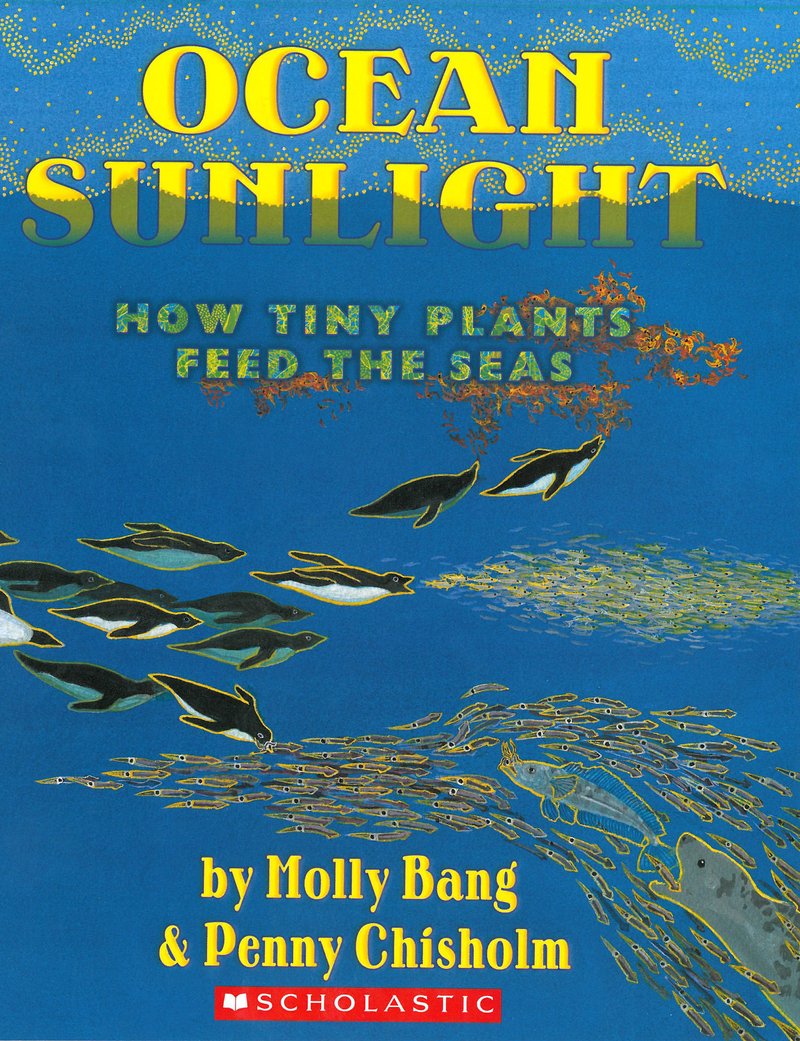
A children's book, Ocean Sunlight, on phytoplankton, photosynthesis, and the marine food web is now available. Click here for more information. View interview with the author and illustrator.
Additional Resources
C-MORE Science Kits - OCB hosts the Ocean Acidification, Marine Mystery, Ocean Conveyor, and Marine Debris kits for use by teachers on the eastern seaboard. Contact hbenway@whoi.edu for more information.
OCB ocean fertilization website
The World Climate Change Simulation




